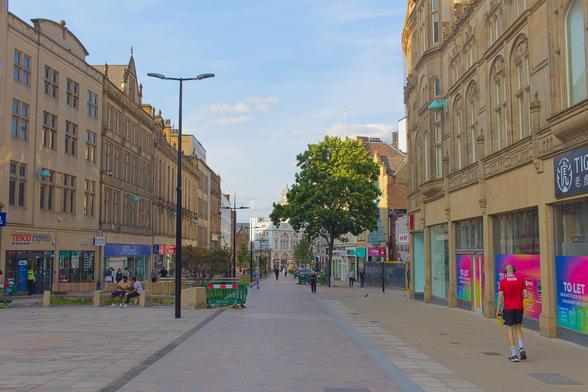#fargate
ハンズオン Terraform(ECS, Fargate, RDS) × Next.js × Gin(Go)
https://qiita.com/Masanarea_qiita/items/8c5ef522bfaade8671b2?utm_campaign=popular_items&utm_medium=feed&utm_source=popular_items
Deploying docker image to AWS Fargate in GitHub
https://blog.popescul.com/posts/2024-12-09-deploying-docker-image-to-aws-fargate-in-github/ #docker #aws #fargate
EKS Auto ModeとEKS on Fargateの違いを調べてみた
https://qiita.com/takahash_3/items/79487ac82d166e1ec47f?utm_campaign=popular_items&utm_medium=feed&utm_source=popular_items
Decision Guide: AWS Fargate or AWS Lambda?
AWS Fargate or AWS Lambda?
https://docs.aws.amazon.com/decision-guides/latest/fargate-or-lambda/fargate-or-lambda.html
There is a new and very useful decision making guide for those wondering if AWS Fargate or AWS Lambda is the right kind of compute. It’s very thorough and well organized.
Coincidentally, I was just having a discussion about this very topic with a customer yesterday. It’s always surprising to me what kinds of factors influence decisions like these. Popularity of a particular tech stack vs. simplicity and user experience are big ones. But, things like confusion around package size limits or potential edge case scaling issues once “we get tons of traffic” are the kind of thinking that very often lead us down a weird road.
Hopefully this guide will help customers make sound decisions at the right moments in their dev cycles.
https://dev.to/aws-builders/get-direct-traffic-to-ecs-fargate-containers-with-letsencrypt-cdk-and-aws-lambda-probably-a-bad-idea-3la7 - exposing #Fargate to the public internet with #SSL takes some work. Nice solution ... and nice callout of why it's typically a bad idea https://github.com/ThomasRooney.
New Relic InfrastructureでAWS Fargateをモニタリングしよう!
https://qiita.com/nr-mito/items/a600b109a356defa85e8?utm_campaign=popular_items&utm_medium=feed&utm_source=popular_items
【インフラ刷新】Elastic Beanstalk から ECS on Fargate への乗り換え
https://qiita.com/lyd-ryotaro/items/8416ebd845f3d0655929?utm_campaign=popular_items&utm_medium=feed&utm_source=popular_items
【AWS × Terraform】ECSでエロ画像検出APIを爆速デプロイしてみた
https://qiita.com/sugichaaaan/items/0a184a557928da0e3620?utm_campaign=popular_items&utm_medium=feed&utm_source=popular_items
What is AWS Fargate?
AWS Fargate is a serverless compute engine for containers, part of the Amazon Elastic Container Service (ECS) and Amazon Elastic Kubernetes Service (EKS). It allows developers to run containers without having to manage the underlying infrastructure. With Fargate, you no longer need to provision, configure, or scale clusters of virtual machines to run containers. Instead, you define the application requirements, and Fargate handles the rest, offering a seamless and automated deployment experience. This helps to simplify operations, reduce costs by only paying for the resources you use, and focus more on developing and deploying your applications.
Creating a Fargate Cluster: Best Practices
When creating a Fargate cluster, one of the critical architectural decisions involves how to organise your clusters and services. Should you create multiple clusters for different services and environments, or should you manage everything within a single cluster? Each approach has its advantages and trade-offs. Here’s a deeper dive into these options:
Multiple Clusters for Services and Environments
Advantages:
- Isolation and Security: By isolating services and environments into separate clusters, you can enhance security and limit the blast radius in case of a failure or security breach. Different clusters can have distinct security policies and access controls.
- Resource Management: It’s easier to allocate resources and manage quotas for specific applications or environments, avoiding resource contention issues.
- Compliance: Different clusters can be tailored to meet specific compliance requirements, making it easier to manage and audit compliance controls.
- Operational Independence: Teams can operate independently on different clusters, which can streamline development and deployment processes. This is particularly beneficial for larger organisations with multiple development teams.
Disadvantages:
- Increased Complexity: Managing multiple clusters increases operational complexity, including monitoring, logging, and maintaining configurations across clusters.
- Higher Costs: More clusters might lead to underutilised resources and higher operational costs due to duplicated infrastructure.
- Configuration Management: Ensuring consistency in configuration and deployments across multiple clusters can be challenging.
Single Cluster for All Services and Environments
Advantages:
- Simplified Management: Having a single cluster reduces the overhead of managing multiple clusters. Monitoring, logging, and configuration management are centralised.
- Resource Efficiency: A single cluster can more effectively utilise resources, reducing costs associated with underutilised infrastructure.
- Scalability: Scaling operations is more straightforward as resources are pooled, allowing better handling of variable workloads.
- Consistency: A single environment ensures consistent configurations and deployment practices across all services, simplifying maintenance and updates.
Disadvantages:
- Security Risks: A single cluster means a larger blast radius in case of security issues or failures. This necessitates robust security measures and strict access controls.
- Resource Contention: Different services and environments might compete for resources, leading to potential performance bottlenecks.
- Complex Scaling: Scaling specific services or environments independently can be more complex in a shared cluster.
Recommended Approach
The optimal choice often depends on your organisation’s size, structure, and specific needs:
- Smaller Teams or Startups: A single cluster might be more manageable and cost-effective initially. As the organisation grows, you can reassess and possibly transition to multiple clusters.
- Large Organisations or Regulated Industries: Multiple clusters are generally preferred to ensure isolation, security, and compliance. This approach aligns better with distinct team responsibilities and operational needs.
- Hybrid Approach: Some organisations adopt a hybrid strategy, using separate clusters for critical environments (e.g., production) while sharing clusters for less critical environments (e.g., development, testing). This balances isolation with operational efficiency.
Conclusion
Choosing between multiple clusters or a single cluster in AWS Fargate depends on your specific requirements regarding security, resource management, operational complexity, and costs. Evaluating these factors in the context of your organisation’s goals and constraints will help you make an informed decision. Regardless of the choice, leveraging AWS Fargate’s serverless capabilities can significantly streamline your containerised application deployments and operations.
:laravel: 🔮 Rientriamo dal pranzo con Gabriele Gavigiolo e il suo talk "Laravel containerizzato per AWS Fargate"
Gabriele è Senior Backend & DevOps Specialist
#devops #aws #laravel #laravelday #container #fargate :laravel:
